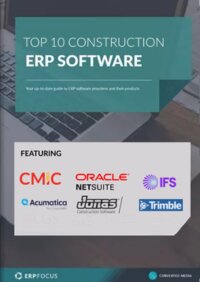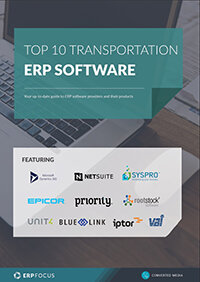ERP Transportation Management: Distributor’s Dilemmas
If one of your expectations is that your distribution ERP project will result in a world class transportation management system (TMS) which generates significant cost savings, you have a high probability of being both disappointed and disillusioned. The problem isn’t that there aren’t good ERP transportation management packages out there (there are), or that transportation management can’t provide a consistent decision-making methodology with reliable KPI (it can). The problem is that most companies rely on day-to-day decision making –not a reliable process - to control costs in transportation management. A repeatable process is a requirement for an efficient ERP transportation management solution.
If transportation occurred by teleportation (like in Star Trek), it would fit into ERP systems nicely. The process would be consistent, and the right master data would result in beaming the shipment to the right coordinates.
Decisions, Decisions, Decisions
Instead, think about the choices a transportation manager makes about a single shipment on a single day, say, going from the east coast of the US to the west coast of the US. These decisions do not integrate easily within ERP transportation management. First, he or she has to understand several things about the shipment itself: (1) how big is it? (2) How much does it weigh? (3) When is it due to arrive? (4) How urgent is the shipment? (5) How susceptible to handling and damage is the shipment? The first two questions determine whether the shipment needs to go parcel, LTL, or full truck load. And depending on the discounts, a full truck load rate might become cost advantageous long before the truck is actually full. When it is due may bring other transportation modalities into the mix. Can it go rail? Longer, but normally cheaper. Is it urgent? Does it need to go air freight? Exorbitantly expensive, but perhaps cheaper than stopping off a manufacturing plant, or a construction site. If the product is fragile, or susceptible to handling damage, you may not want to take the chance on having it cross docked a half dozen times on its journey across the country. Now, add in that a given carrier might give a better rate to Seattle than to Los Angeles, and you add in the possibility that you are job shopping every shipment as well. Repeat this process on fifty shipments a day, and ignore the fact that every customer will complain that his brother-in-law with a pickup truck could have delivered the shipment at half the cost, and you start understanding why transportation planning is not easily programmable in ERP.
The real value of a ERP transportation management is to force you to examine your process, and to see if you have the right tradeoff of ERP flexibility and predictability. If you have long term freight partners, or your own fleet, transportation management may save you money. If your organization views freight as a purchased commodity and the transportation planning process is subject to day-to-day variation based on external factors, TM may not be right for you.
ERP Transportation management has cost savings potential, but it requires thorough understanding and process consistency.
Featured white papers
-

Top 10 Distribution Software Comparison
Compare the best distribution ERP systems available today
Download -

Top 10 Transportation ERP Software Comparison
Get your free comparison of the top 10 transportation ERPs
Download -

7 steps to selecting distribution ERP
Get expert advice on distribution ERP selection and requirements analysis
Download
Related articles
-

Distribution ERP vs WMS: which suits your needs better?
Distribution ERP vs WMS: be clear on the differences with this guide
-

CMMC Compliance: What Aerospace and Defense Manufacturers Need to Know
Key insights on CMMC compliance, deadlines, and securing DoD contracts with CMMC 2.0 certificatio...
-

ERP for Food Distributors: Key Functionality
In a modern world where products are tailored to consumers, why should ERP for food distributors ...

